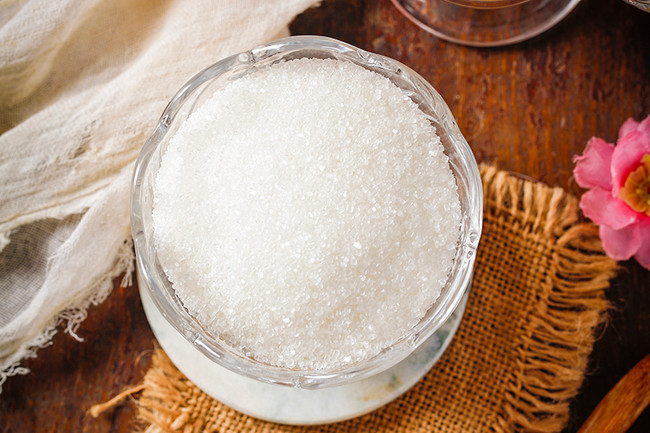✕

Column: industry Tag: sugar,sugar reduction,food sector Published: 2022-07-19 11:12 Source: foodingredientsfirst Author:
Sugar reduction continues to claim its spot as one of the most significant trends in the food sector, with industry players such as Cargill and Sweegen exploring how to reduce and eliminate sugar without sacrificing taste.
It was at the IFT FIRST Annual Event and Expo, reporting from the event’s show floor in Chicago, US (July 11 to 13), we spoke with industry leaders who are advancing in the sweetness arenas.
Cargill is working on Eversweet+ClearFlo, said to offer better dissolution, solubility and stability. The company pegs it a “game-changer” in the stevia space as it allows Cargill to access products where stevia was challenging to include in its formulations, including functional beverages, concentrates and confection.
Innova Market Insights research notes that this year there has been an uptick in stevia product launches, surging by 27%. As natural sources gain ground in the sugar reduction space.
“The pandemic amplified consumers’ health and well-being concerns, and sugar intake is clearly one way they’re striving to manage their overall wellness better,” says Carla Saunders, senior marketing manager at Cargill.
“At the same time, products must taste great to earn repeat purchases. Finding a sweetening solution that can deliver on both fronts is key to long-term marketplace success,” she continues.
To contextualize food sugar reduction and what it can do to every household, Sweegen created three menus, one for each day of the show.
“Consumers we’re not often cognizant of how much sugar is in foods that might not necessarily be sweet to the taste,” Kaimana Chee, chef ambassador partnering with Sweegen, tells.

Sugary menus, sweet solutions
Chee prepared the three dishes with a recurring motif, keeping in mind everyday foods that we might not fully acknowledge carry substantial amounts of sugar.
A sugar-free crispy chicken sandwich using Sweegen’s Platinum LQ, a stevia-based sweetener, as well as replacing the sugars from pickles – a sugar-loaded food that might fly under consumers’ radar.
Chee also prepared corn dogs using zero sugar in the batter, Hawaiian tacos with jack fruit and Korean tacos with bulgogi were also presented.
“Marinades are another vehicle for a lot of hidden sugars. People don’t realize that; the teriyakis, the barbecues, right? So marinades have a lot of sugar; we took them all out and again, not compromising flavor.”
Chee explains that their cinnamon churros without sugar were also a success.
Dare you open the ark of taste?
While the planet offers an unimaginable diversity of animal and plant ingredients, companies focus on a fraction of those ingredients. If explored with enough care, a sugar-reducing solution might be eager to present itself among this vast biodiversity.
“There are 400,000 plants in the plant kingdom, right? And currently, in the food system, we use only about 8% because once big industries found corn and sugar, they stopped looking for other solutions that might have been better for our bodies. And a company like Sweegen is integrating more solutions in the plant kingdom to help us eat better,” says Chee.
Earlier this week, FoodIngredientsFirst also delved into the topic by speaking with Dan Saladino, author of “Eating to Extinction: The World’s Rarest Foods and Why We Need to Save Them.” Saladino highlighted the detriment of monoculture and shared evidence of its impact gathered from his global travels.
Is low sugar better than no sugar?
Cargill’s new research suggests that consumers might be prioritizing low sugar content over sweeteners.
“Sixty-two percent of consumers report they are likely to check the amount of sugar before purchasing a new product,” highlights the business.
The study, which included 1,200 US grocery shoppers, found that “consumer sugar-reduction journeys are ongoing,” laying the insights for future product innovation in the business, according to Cargill.
The study also presented evidence that sweetener claims to influence purchases, with words like “natural” or “no artificial” working with consumers.
“The popularity of these types of claims – especially sugar-reduction – have been amplified by COVID-19, building on the ‘clean eating’ trends we’ve been tracking for several years,” notes Saunders.
“Products with these on-pack labels are often perceived as less processed and more healthful” she continues. “That aligns with the demands of today’s more health-conscious consumers, who are seeking to manage their health and wellness goals through food and beverage choices.”
Cargill noted previously that, in the case of European consumers, 37% make conscious attempts to seek out products that contain natural sweeteners.
Previous:Fruit as a snack could be good for our mental health
Next:Wendy's employee shares little-known menu hacks to try to create the 'ultimate' burger
Hot key words
Hot Products
Popular Vendors